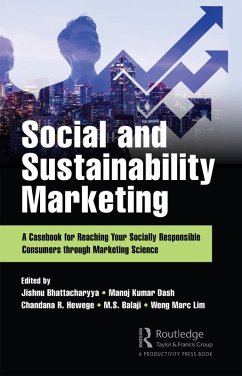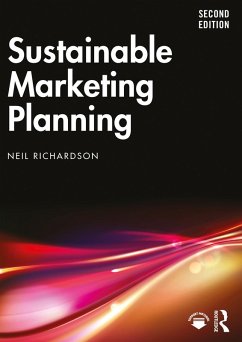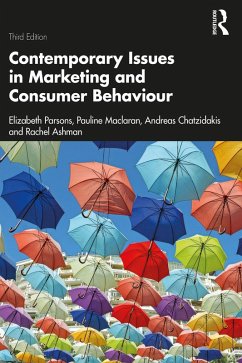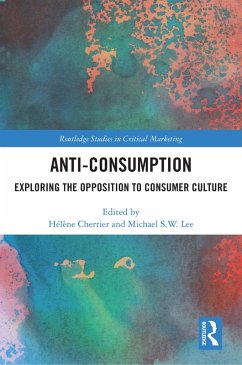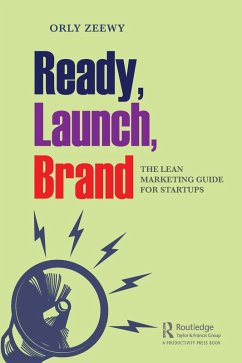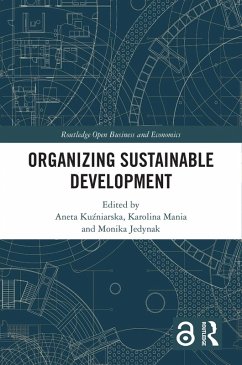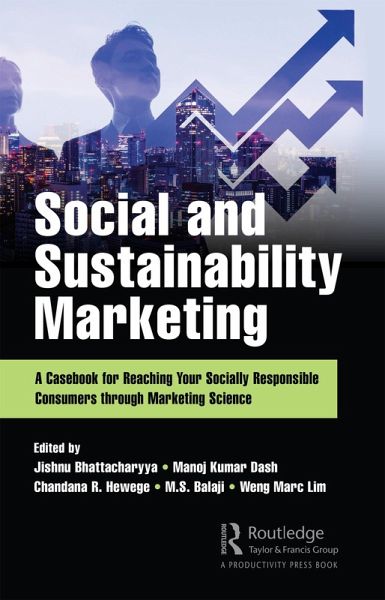
Social and Sustainability Marketing (eBook, PDF)
A Casebook for Reaching Your Socially Responsible Consumers through Marketing Science
Versandkostenfrei!
Sofort per Download lieferbar
61,95 €
inkl. MwSt.
Weitere Ausgaben:

PAYBACK Punkte
31 °P sammeln!
"... an important intervention in the conversation around social and ecological sustainability that draws on both micromarketing and macromarketing scholarship to help the reader understand the challenges with illustrations from insightful cases both from emerging and developed economies. This compilation should be essential reading for the discerning student of sustainable consumption and production."-- Professor Pierre McDonagh, Associate Editor, Journal of Macromarketing (USA); Professor of Critical Marketing & Society, University of Bath, UKExperts in the field of economics, management sci...
"... an important intervention in the conversation around social and ecological sustainability that draws on both micromarketing and macromarketing scholarship to help the reader understand the challenges with illustrations from insightful cases both from emerging and developed economies. This compilation should be essential reading for the discerning student of sustainable consumption and production."
-- Professor Pierre McDonagh, Associate Editor, Journal of Macromarketing (USA); Professor of Critical Marketing & Society, University of Bath, UK
Experts in the field of economics, management science, and particularly in the marketing domain have always been interested in and acknowledged the importance of sustaining profitable businesses while incorporating societal and environmental concerns; however, the level of existing literature and availability of teaching cases reflect a dearth of real case studies, especially those focused on marketing for social good. This book of actual case studies will address that need. In addition, this book is important and timely in providing a case book for instructors (those in both industry and academia) to help them in teaching and training the next generation of leaders through corporate training and universities.
Currently, marketing for social good is increasingly becoming a part of most curriculums under the umbrella of different titles, such as social marketing, green marketing, and sustainability marketing. The relevance of these studies is increasing across the globe. This book is composed of long and short real cases with varying complexity in different sectors. This case book will also cover some review articles for an overview of the recent developments in the study area. With these case studies, collections of questions, teaching materials, and real-life marketing scenarios, this book offers a unique source of knowledge to marketing professionals, students, and educators across the world.
The main objective of this case book is to understand the applicability of marketing science (marketing for social good context, such as social marketing and sustainability marketing) in internet marketing related to e-buying behavior and e-WOM. In addition, it illustrates the various types of existing marketing practices that are relevant from both theoretical and practical points of view in this electronic era, as well as discussing other non-electronic marketing practices and focusing on consumer buying behavior. As a result, marketing managers can treat their customers according to their desired value. This book particularly explores the possibilities and advantages created by social marketing and sustainability marketing through the presentation of thorough review articles and case studies. This case book helps corporate training centers and universities with compact teaching reference materials in their relevant courses.
-- Professor Pierre McDonagh, Associate Editor, Journal of Macromarketing (USA); Professor of Critical Marketing & Society, University of Bath, UK
Experts in the field of economics, management science, and particularly in the marketing domain have always been interested in and acknowledged the importance of sustaining profitable businesses while incorporating societal and environmental concerns; however, the level of existing literature and availability of teaching cases reflect a dearth of real case studies, especially those focused on marketing for social good. This book of actual case studies will address that need. In addition, this book is important and timely in providing a case book for instructors (those in both industry and academia) to help them in teaching and training the next generation of leaders through corporate training and universities.
Currently, marketing for social good is increasingly becoming a part of most curriculums under the umbrella of different titles, such as social marketing, green marketing, and sustainability marketing. The relevance of these studies is increasing across the globe. This book is composed of long and short real cases with varying complexity in different sectors. This case book will also cover some review articles for an overview of the recent developments in the study area. With these case studies, collections of questions, teaching materials, and real-life marketing scenarios, this book offers a unique source of knowledge to marketing professionals, students, and educators across the world.
The main objective of this case book is to understand the applicability of marketing science (marketing for social good context, such as social marketing and sustainability marketing) in internet marketing related to e-buying behavior and e-WOM. In addition, it illustrates the various types of existing marketing practices that are relevant from both theoretical and practical points of view in this electronic era, as well as discussing other non-electronic marketing practices and focusing on consumer buying behavior. As a result, marketing managers can treat their customers according to their desired value. This book particularly explores the possibilities and advantages created by social marketing and sustainability marketing through the presentation of thorough review articles and case studies. This case book helps corporate training centers and universities with compact teaching reference materials in their relevant courses.
Dieser Download kann aus rechtlichen Gründen nur mit Rechnungsadresse in A, B, BG, CY, CZ, D, DK, EW, E, FIN, F, GR, HR, H, IRL, I, LT, L, LR, M, NL, PL, P, R, S, SLO, SK ausgeliefert werden.




